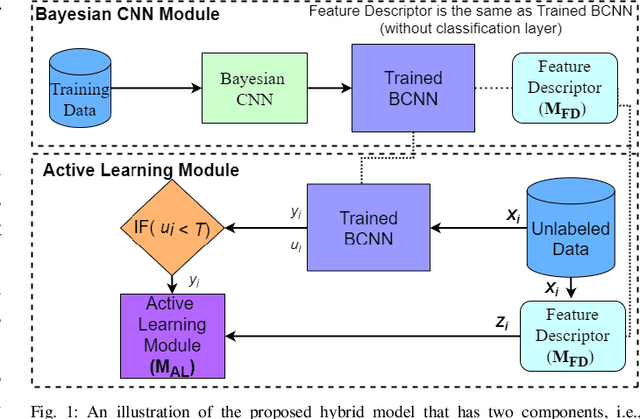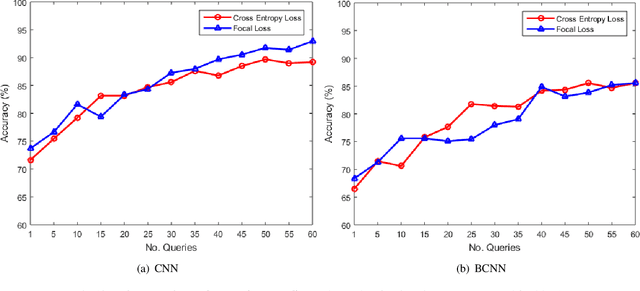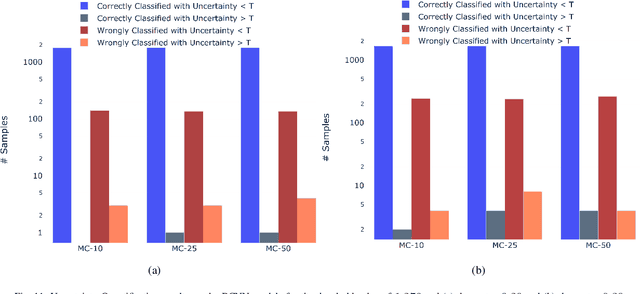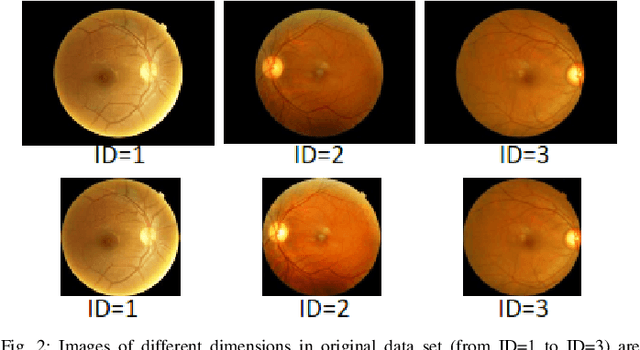An Active Learning Method for Diabetic Retinopathy Classification with Uncertainty Quantification
Paper and Code
Dec 26, 2020



In recent years, deep learning (DL) techniques have provided state-of-the-art performance on different medical imaging tasks. However, the availability of good quality annotated medical data is very challenging due to involved time constraints and the availability of expert annotators, e.g., radiologists. In addition, DL is data-hungry and their training requires extensive computational resources. Another problem with DL is their black-box nature and lack of transparency on its inner working which inhibits causal understanding and reasoning. In this paper, we jointly address these challenges by proposing a hybrid model, which uses a Bayesian convolutional neural network (BCNN) for uncertainty quantification, and an active learning approach for annotating the unlabelled data. The BCNN is used as a feature descriptor and these features are then used for training a model, in an active learning setting. We evaluate the proposed framework for diabetic retinopathy classification problem and have achieved state-of-the-art performance in terms of different metrics.
 Add to Chrome
Add to Chrome Add to Firefox
Add to Firefox Add to Edge
Add to Edge